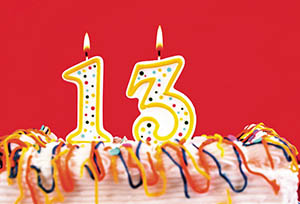
Last week was the Bike4Chai ride. Over 650 people cycled 100 miles in one day to raise money for Chai Lifeline and Camp Simcha, for children with life-threatening illnesses. The scene at the finish line was incredible. Hundreds of families and friends of the riders waited at the finish line to greet them. A huge tent was set up with food galore. Each rider had different personal goals. For some, it was exercise and training. Others wanted the friendships and camaraderie they experienced during the ride. But across the board, the main goal was to raise funds to help bring joy to Camp Simcha’s children and their families.
This Shabbos and Sunday are Rosh Chodesh Elul. The month of Elul is referred to in the Torah as “acharis shanah, the end of the year.” Hashem is watching over us “meireishis hashanah v’ad acharis shanah, from the beginning of the year until the end of the year.” The Gemara says that the beginning of the year refers to the month of Tishrei and the end of the year refers to the month of Elul.
The common meaning of the word acharis is the end, but Rav Moshe Shapiro enlightens us to another meaning: completing a goal that was established at the beginning of the year—similar to a finish line in a race! Hence, the end of the year is not an end in itself, but rather the completion of a goal for the whole year.
However, what’s quite different from the finish line of a race is the way the completion of the year connects to the start of the next year.
The Mishnah Berurah quotes the famous allusion to the month of Elul from the first letters of four words in Shir HaShirim: “Ani l’dodi v’dodi li,” which spell “Elul.” What’s not as well-known is what we derive from the last letters of these four words, all of which are the letter “yud.” Yud has the numerical value of 10, so the sum of the four letters equals 40, alluding to the 40 days from Rosh Chodesh Elul through Yom Kippur. And so we see, the end of the year links us to the New Year.
Many people associate the month of Elul with the guilt of having to face all their shortcomings on Rosh Hashanah. We know that Elul is a time for teshuva, repentance, but we may tend to feel paralyzed because we don’t even know where to start. This perspective comes from relating to Elul as acharis—the end of the year, i.e. Rosh Hashanah is my deadline to give an accounting for my actions in the past year. However, Rav Shapiro reminds us that Elul is the month that propels us into the next year. This empowering mindset can give us confidence in our own success regarding teshuva.
I recently spent a few months working with Rabbi Avraham Lewis, an expert fundraising coach, to guide me forward in the next stage of our new building campaign for our “Yeshiva for the Working Man.” Rabbi Lewis trained me to always be thinking about my next step. Call, text, email a person with a date and time for the task you wish him to fulfill. Always look forward and move towards the next step. In this way, even if there’s a setback in one aspect, I’m always taking the next step forward.
This invigorating approach is the message of Elul. Don’t get frozen or overwhelmed with any failures of the past year. The failures are behind you—Elul is about the future. Take the next step into the New Year!
In the Sefard version of Kedusha in Shabbos Musaf it says “hein goalti eschem acharis k’reishis, the redemption will come when the end of the year is like the beginning of the year.” In these words lies the formula for success. Treat the acharis, the completion of the year, like the reishis—by taking a new step forward, looking forward to future successes rather than dwelling on past failures.
Some of the latest marketing slogans say “Take it to the next level.” The Torah’s slogan for this month is “Take the next step.” May Hashem give us the insight to motivate ourselves to take the next step to complete our goals and move to the “next level” of our spiritual development in this coming year.
Rabbi Baruch Bodenheim is the associate rosh yeshiva of Passaic Torah Institute (PTI)/Yeshiva Ner Boruch, where he leads a multi-level Gemara-learning program. PTI has attracted adult Jews of all ages from all over northern New Jersey for its learning programs. Fees are not charged but any contributions are always welcome. Beyond PTI, Rabbi Bodenheim conducts a weekly beis midrash program with chavrusa learning in Livingston plus a monthly group in West Caldwell. Rabbi Bodenheim can be reached at [email protected]. For more info about PTI and its Torah classes, visit www.pti.shulcloud.com .













